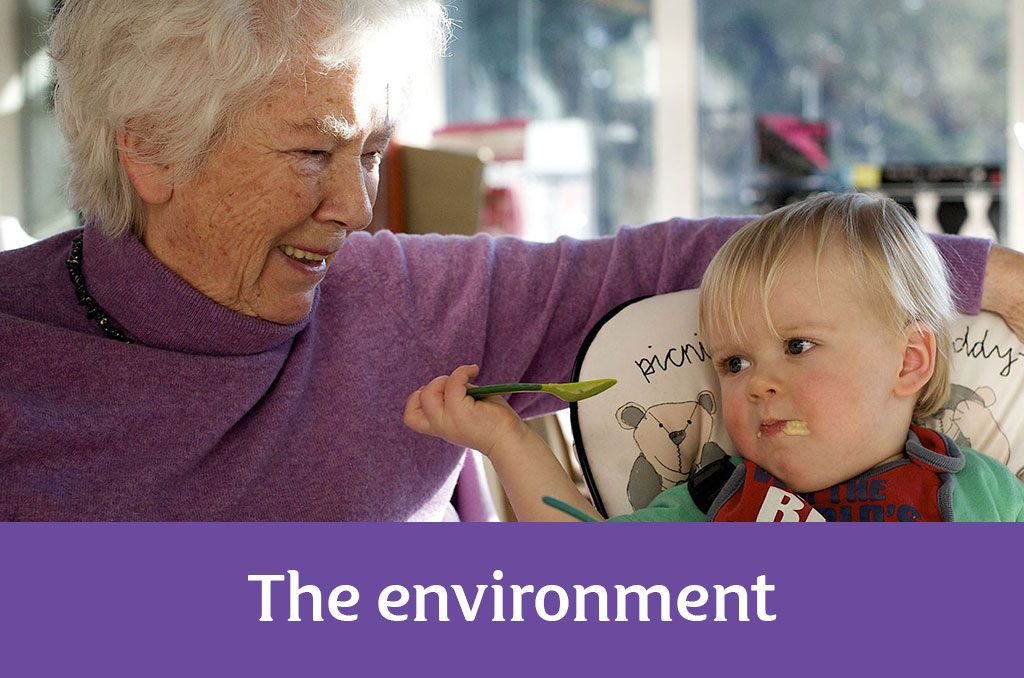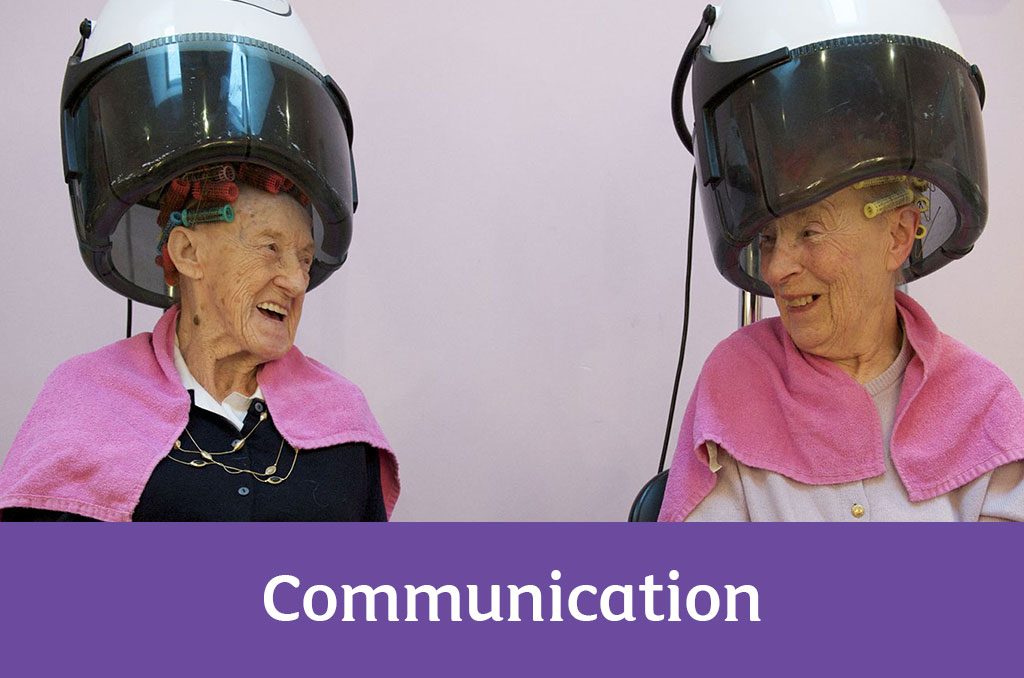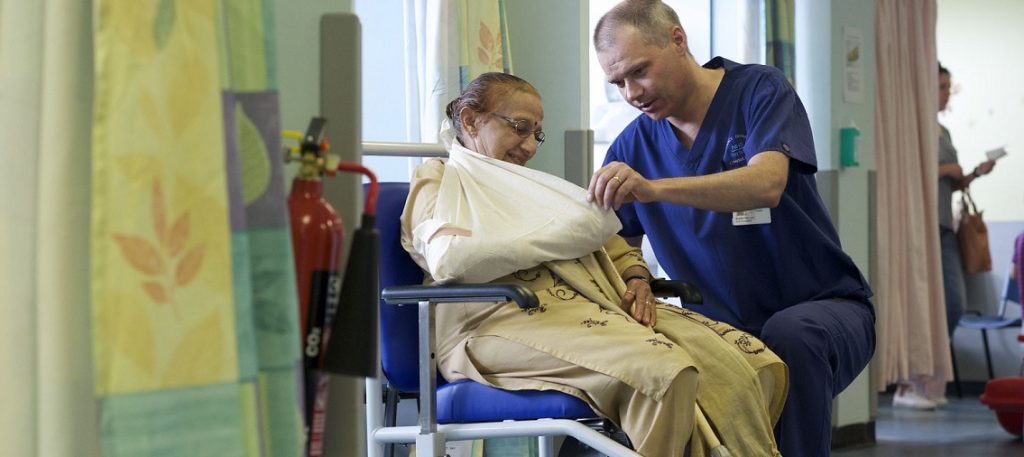
Hospital admissions and visits
The following information draws on practice based knowledge, research evidence and expertise, to provide practical guidance on a range of subjects, from preparing for admission, to a hospital stay, to returning home.
For some people living with dementia, being admitted to hospital can be a confusing, and traumatic experience. The DSDC aims to share practical hints and guidance for when someone with dementia is admitted to hospital, recognising the challenges associated with an acute hospital setting.
Where possible, supporting someone living with dementia at home would always be a preferred option.
We appreciate that at the moment, preparing for a hospital admission may be more stressful than normal due to COVID-19, with many changes in place. Alzheimer’s Disease International have released a position paper on COVID-19 and dementia, which you access here. Alzheimer Scotland have also created a useful resource that you can refer to during this time:
Preparing for an admission
Hospital visits can be stressful for anyone and this is doubly true for people living with dementia.
Therefore it can be helpful if family members or carers know as much as possible about the up and coming appointment. Depending on the person’s wishes, it can be beneficial to accompany them to healthcare appointments leading up to admission. This could allow you to ask questions, take notes, and get a good understanding of what is going to happen, and when.
It can be helpful to start preparing for the hospital stay as soon as possible. Involve the person with dementia in the planning and preparation as much as possible. Work out which are the favourite pyjamas, slippers, dressing gown, and find out which magazines, books, activities or photo albums they would like to have with them.
It is always a good idea to label important possessions with the person’s name to alleviate them getting mixed up with others. It would also be useful for identifying reading glasses from distance glasses if there was a small label highlighting. If the house will be empty while the person is away, check that the bins will be emptied, and remove perishables from the fridge that will not last until their return.

Handling emergency admissions
Unfortunately, not every visit to hospital can be planned and managed ahead of time, and it can often be difficult for healthcare professionals to identify when someone is confused due to their injury or whether they have dementia. As someone who knows the person well, it is important that you inform staff about the person’s dementia whenever possible. It is also important to remember that an emergency admission can contribute to confusion and fear, making the arrival to hospital and the admissions process more stressful.
TIP: Try and stay as calm as possible, this can help reduce some of the person’s anxiety, and provide reassurance as to what is going on, as hospitals are often unfamiliar, noisy and full of bright lights, alarms and busy strangers.
TIP: If possible, give the person living with dementia the opportunity to answer the questions asked of them. This may include giving incorrect or incomplete answers; but that’s ok! This provides the nurses and doctors a better insight and you will be able to address any mistakes or fill in any missing information at the end of the consultation.
TIP: It is important that you stay with the person as much as possible throughout the admissions process. If you have power of attorney, you have greater rights to remain with that person than you would if you were a friend or family member without.
Helpful items to pack in a hospital bag
- Extra layers – A cardigan or a blanket that can be used when in cold areas of the hospital.
- Music and Activities – Having something to listen to may not only help keep the person entertained and relaxed during long wait times, but can also help filter out or block unfamiliar or unwelcome sounds like alarms or the conversations of other patients. You could include story or puzzle books, photo albums or magazines; what each person keeps in their hospital bag will differ depending on their interests.
- Snacks and water – Having some favourite snacks and water available during the waiting process can be helpful as long as you check with hospital staff that it is ok to have something to eat.
- Likes and dislikes – Take a note of what is important to the person i.e. food preferences, if they sleep in the dark, or other useful information that would be helpful to share during their hospital stay.
Areas that are worth thinking about as someone who is supporting a person with dementia in hospital
Physical environment
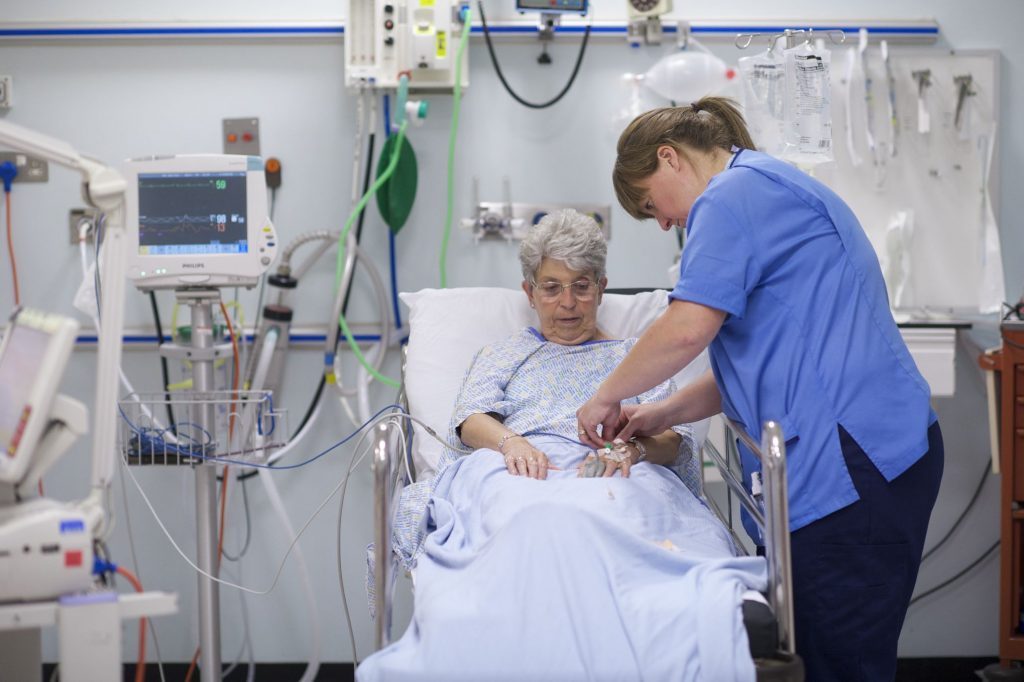
Staying in hospital can be a frightening and stressful experience for anyone, but this is particularly true for people living with dementia.
Hospital wards can be particularly confusing, as it is an unfamiliar space, away from the comforts of home, and surrounded by the noise and activity of a busy ward. This strange environment can be particularly distressing for people with dementia, and as their anxiety rises it makes it more difficult to settle. Which in turn can impact on their sleep, their eating, and their ability to concentrate with the constant noise or activity surrounding them. This may lead to a change in the person’s behaviour which may also be distressing for fellow patients, and also mean they may require more attention from healthcare staff.
Being in a single room will be a quieter environment and may help alleviate some anxiety as they try to adjust to unfamiliar surroundings. There is greater opportunity to bring in familiar possessions if a person is in a single room. If there is an ensuite this can also alleviate stress and anxiety as the person does not have to navigate a strange environment to find the toilet.
If you realise that the healthcare team plan to place the person with dementia on a busy ward, do not hesitate to ask if the person can be cared for in a single room.
Hospital procedures and bed moves
While bed moves are relatively common in a hospital setting, staff should make every effort to avoid moving the person unnecessarily. Each move can cause greater stress for the person and this is an area where using your voice to advocate for the person with dementia may once again be required.
TIP: Do not be afraid to mention to staff about any behaviours the person uses to communicate stress, and how these may affect other patients in a ward environment. Moving a person with dementia should never be a decision based on convenience – but on their particular healthcare needs.
TIP: Make it clear that you wish to be contacted in advance if the person with dementia might be moved into a different room or ward.
TIP: Make a point that you do not mind answering calls during the working day or overnight if necessary.
TIP: Make sure that the staff have a way to contact you 24 hours a day.
TIP: Be prepared to argue against a bed move.
Taking these steps may not stop the person being moved, especially if there is a change in their condition that means they need to be cared for in a specialist ward. But do not be afraid to ask questions and make your opinions known.
Eating and drinking in hospital
One of the biggest concerns when someone is admitted to hospital is around food. It is vital that you discuss any concerns you have with the hospital staff – especially if you know that the person finds it difficult to remember to drink enough during the day, or if they need support while eating.
Unless a doctor has given specific instructions, someone with dementia who is staying in the hospital should always have access, and be encouraged, to drink plenty of fluids throughout the day.Staying hydrated is a key part of staying healthy and recovering from illness.
TIP: Always put the jug where it can be easily seen and reached by the person with dementia. Consider bringing a coloured cordial or diluting juice to add to the water to make it more noticeable as the person may find it difficult to see if both the container and the liquid are clear.
TIP: Prompt the person to take lots of small sips throughout your visit.
TIP: Tell the ward nurse or healthcare staff if you are worried that the person is not drinking enough.
It is important that people with dementia are actively and consistently supported to eat well while they are in hospital. If you are concerned about whether your loved one is eating enough, do not hesitate to raise this with the ward staff. It may be possible for you to arrange visits specifically to help the person at mealtimes. We need to take into consideration that the person may have a smaller appetite while in hospital, but that does not mean they might not be tempted to eat and drink later if it is easily available.
Visiting
Visiting someone in hospital can be physically and emotionally draining, but the reassurance of a familiar face can be very beneficial for the person. Things you can consider:
- Firstly find out the visiting hours for the particular ward the person is on, and make sure to keep them handy.
- If the person is asleep when you arrive, consider sitting quietly rather than attempting to wake them.
- Bring things with you that might be of interest to the person with dementia. You could bring photographs to talk about, a deck of cards, jigsaw, or other activity you can do together. This may help the person engage and make the most of your visit
- Take the opportunity to charge anything that the person may be using, or may like to use during their stay.
- Consider talking to the ward staff about whether it is possible to take the person out of the ward for a short time.
- Check if there is a garden so that you can take the person outside to enjoy some natural light and fresh air if the weather permits.
- Hospital stays can be stressful, but they can also be incredibly dull and frustrating so building a ‘team’ or a rota of family and friends who will visit can be helpful if the person is going to be in hospital for a while.
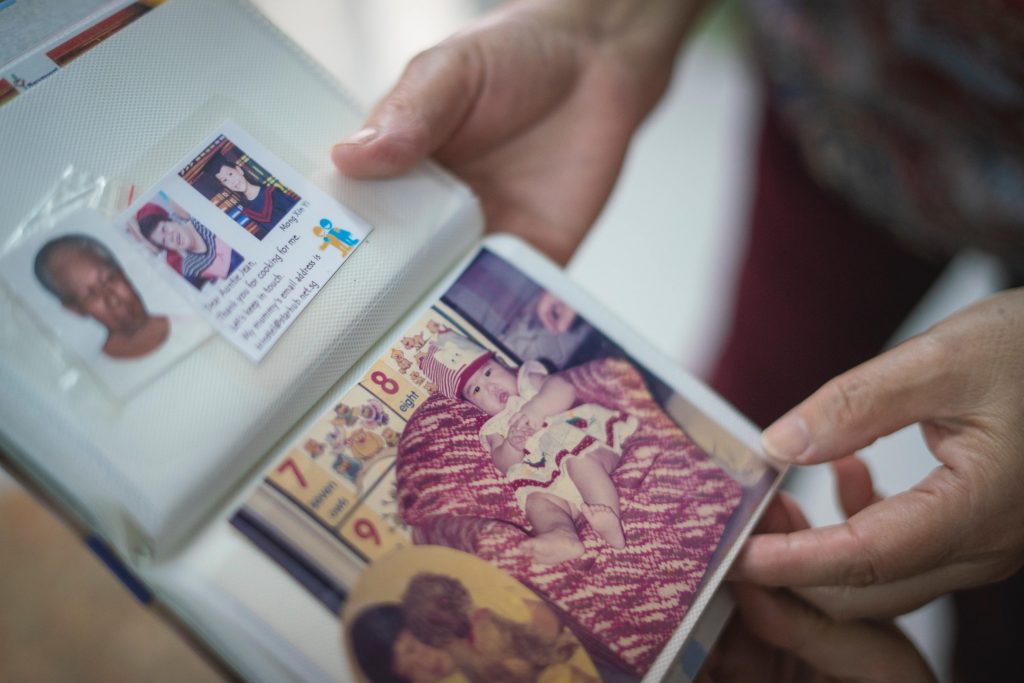
Delirium
Delirium is a temporary, reversible condition, where a physical illness or injury causes a state of extreme confusion, which sometimes occurs when a person experiences infections and other illnesses.
People with dementia may show signs of delirium when they arrive at hospital, or begin to develop the condition during their stay.
Recognising potential signs of delirium
Either the person becomes more agitated and reacts more strongly to what is going on around them, or they withdraw, and become unusually quiet and passive, seeming not to respond to what is happening.
In both cases, the person may become confused, or begin to experience hallucinations as their brain struggles to make sense of the world around them.
It is important to recognise if this happens, as delirium is a medical emergency and must be treated quickly when it occurs.
If you suspect that the person you are visiting or supporting through admission has delirium, you must tell the healthcare staff about your concerns as soon as possible.
Despite the seriousness of the condition, there are some things you can do to help the person with dementia:
- Ask that as few staff are involved in the persons care as possible, so that familiarity can be built up.
- Reassure the person: delirium is an incredibly confusing and frightening experience, which can cause someone with dementia to feel incredibly vulnerable.
- Be gentle and patient, and give all of the reassurance you can that things will be ok.
- Talk to the ward staff and see if they can authorise extended visiting hours, and contact your support network to see if people can visit more regularly until the delirium passes.
- Consider bringing possessions from the person’s home that will provide comfort, including pictures of family, friends or pets.
- Ask the ward staff any questions you may have about what is happening, and what may be causing the delirium.
Remember that delirium is a serious but treatable condition, and that even if it does not feel like much, just being there for the person with dementia will play a big role in helping them cope with the experience and recover
Medication and treatment
Following a change to medication don’t hesitate to draw attention to any aspects of the person’s behaviour that are out of the ordinary for them. Remember that the hospital staff have only known the person while they are unwell, so may not realise that certain behaviour is unusual. This lack of insight can lead to staff expecting too little from the person, and assuming that certain behaviours or challenges are related to that person’s dementia diagnosis, rather than looking for another underlying cause.
Pain Management
Being in pain can also make it more difficult for the person with dementia to express themselves clearly in a way that hospital staff understand. If you notice that the person with dementia is not reacting as they usually would, raise the issue with their care team as soon as possible. Be assertive and ask about whether they have been prescribed pain medication, and if so, when it was last administered.
Anti-psychotic Medication
It is important that you question and challenge any attempts to prescribe anti-psychotic medication for the person with dementia. Ask if the staff have considered other reasons why the person might be showing increased signs of agitation, or behaving in a way that justifies the use of anti-psychotics.
It is always important, however, to ask questions and receive clear answers whenever the topic is raised, particularly if you suspect it has been prescribed before all other avenues have been tried.
Going home
While the questions that you will need to ask will be unique to the person living with dementia and the health condition that led to their admission, there are a number of areas that are helpful to consider:
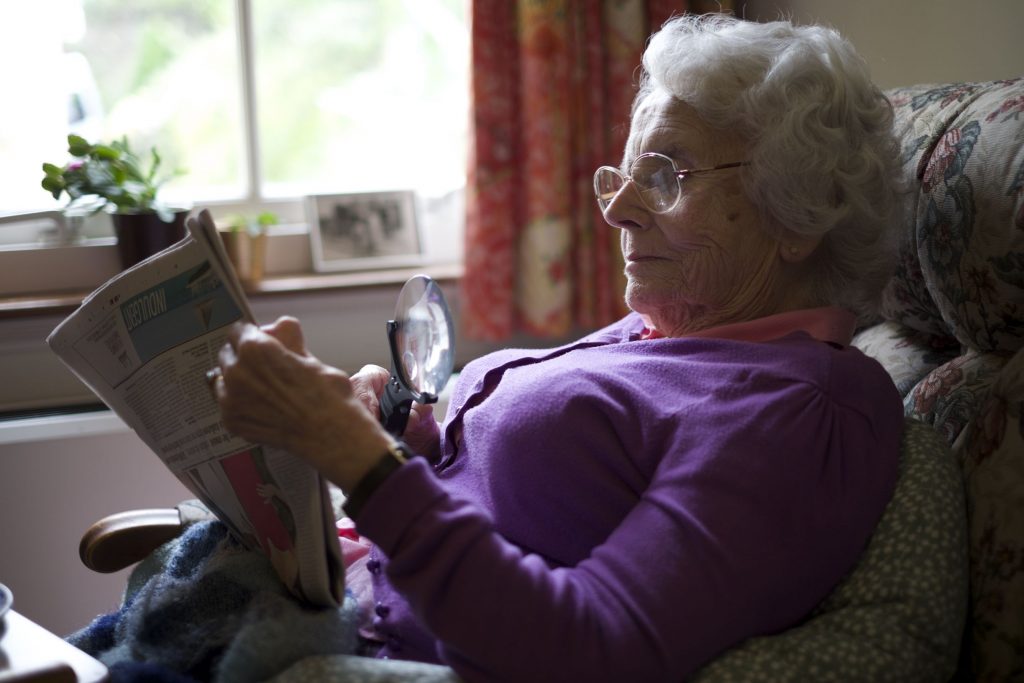
- How has the persons’ stay in hospital affected their functioning?
- Does the person appear to be having more difficulty remembering certain things or completing certain tasks?
- Does the person need additional support to be in place before they are discharged?
- Has an Occupational Therapist or Physiotherapist carried out an assessment of their needs?
- If not will an assessment be carried out before the person is discharged?
- Try and ensure that all the necessary equipment and support is in place before the person is discharged or on the day of discharge to help facilitate a smooth transition.
- Who will be providing care and what support may be available to you?
Better to ask these questions before discharge so you are comfortable with the discharge plans especially if you are the main carer.
10 helpful hints
1. Prepare
Consider assembling a ‘hospital bag’ ahead of time so that you have the things you will need to support the person (and yourself) through this process.
2. Share information
Point out if the person with dementia is behaving in a way that is unusual for them. Let the staff know how the person would be behaving if they were feeling well. Be prepared to ask questions and to take notes of the answers if necessary so that you can better understand what is happening, and can support the person with dementia to understand too.
3. Advocate
Be prepared to advocate for the person with dementia and to fight for what they need where necessary (for example, arguing for a single room and against unnecessary bed-moves can make a big difference for the person with dementia even if it complicates things for care staff).
4. Ask questions
People with dementia often find it difficult to think quickly, or to communicate clearly, to people that they don’t know, particularly when they feel unwell. Take the time you have with them to find out how they feel about what is going on, and be prepared to advocate on behalf of their wishes where required.
5. Be alert
Keep an eye on the person with dementia. If something changes, such as their ability to hold a conversation, or if they start complaining of new symptoms or pain, make sure to raise this with the healthcare team as soon as possible.
6. Support eating and drinking
Unfortunately, the person with dementia may find it more difficult to eat or drink in hospital where the environment, food, cups, cutlery and so on are all different than they are at home. Wherever possible, support the person to eat and drink regularly by making sure items are placed where they can see them and are easily accessible.
7. Be present
Where possible, try not to answer calls or texts while you are with the person with dementia, and instead engage with them directly. Be prepared to talk about anything and everything that might interest them, and make sure that they have as much of your attention as possible while you are together.
8. Ask for help
Supporting someone with dementia while they are in hospital can be exhausting. Think about arranging a ‘rota’ of visitors to allow you to spend time away from the hospital without worrying about the person being alone.
9. Watch for red flags
Be prepared to raise concerns with the healthcare professionals involved in the person’s care whenever you notice a change in the person’s behaviour that doesn’t ‘feel’ right. Remember, the hospital staff do not know the person outside of this moment, they don’t know what may be normal, or not normal, so it is up to you to watch for and communicate anything that seems out of the ordinary as they receive treatment and once they return home.
10. Plan for the future
It is important to begin planning for the person’s discharge as soon as possible. Be prepared to ask about discharge policy, as well as about any assessments and support that may be available ahead of time. The sooner you have the information, the sooner you can put things in place to make the transition from hospital to home as smooth as possible. Lastly, plan for something nice on discharge so there is something positive to look forward to.
Read more about eating and drinking for people with dementia in DSDC’s 10 Helpful Hints for when a person with dementia has to go to hospital. If you live in Scotland you can request the 10 Helpful Hint series for free, thanks to funding
Explore More…


